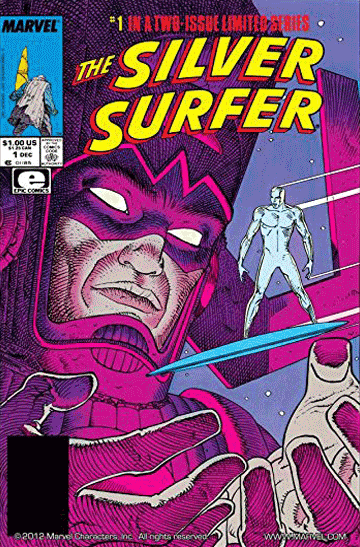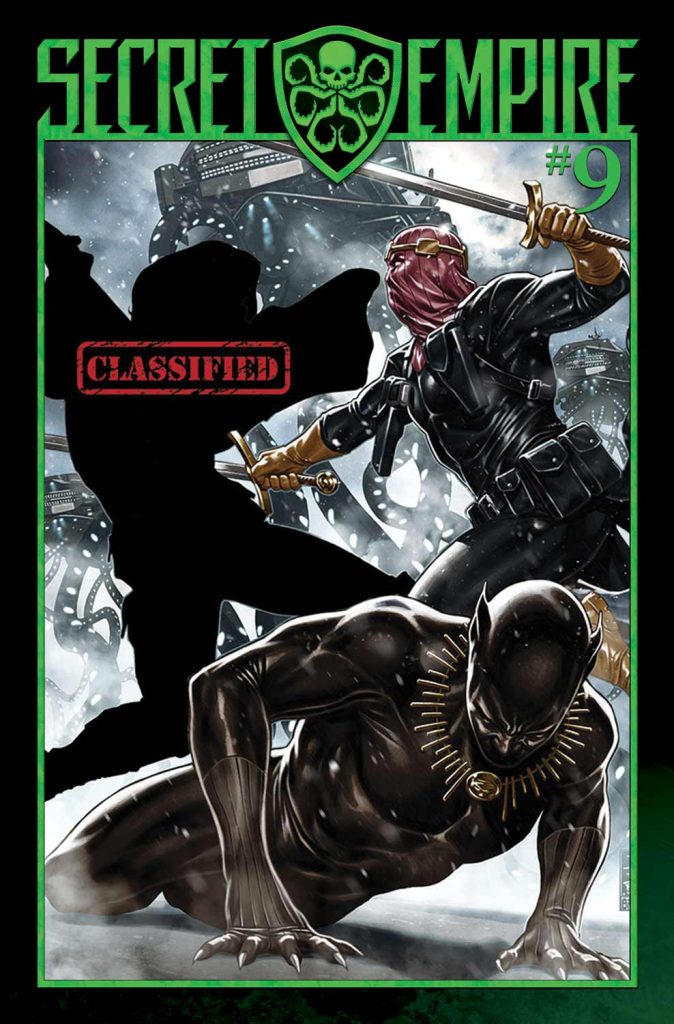(1) VERSUS ORVILLE. Nick Izumi conducts his own “Trek Off: Comparing ‘The Orville’ to ‘Star Trek: Discovery’” at Nerd & Tie.
Production Design:
The Orville‘s sets and costumes are also reminiscent of 90s Trek. The inside of the ship is well lit, the Bridge design is almost one-to-one with any Federation ship from Star Trek. Event the titular ship basically has a saucer section and light-speed engines in the back. It really doesn’t look bad, all things considered, just really derivative. We all know it wants to be Star Trek, it just legally isn’t. The show does still look very nice, and it’s not just the ins and outs of the ship — the alien make-up is on point. With some occasional cheesy exceptions, you can’t knock The Orville‘s look.
Discovery uses mostly familiar Trek design language, but the budget is clearly much higher than the TV Trek shows that came before it. This has its ups and downs. Some may not take to the very Kelvin Timeline inspired look of the interiors of the Starfleet ships. The new uniforms also seem to be a continuity hiccup, but they honestly look so snazzy, I personally can’t knock them.
What I will knock is the designs of everything Klingon. While Klingon fashion could easily be different in different parts of the universe, the look of the Klingon’s heads and the design language of their ships simply does not match with the established Klingon aesthetic. Frankly, these deviations are not the kind that are easy to overlook. Still, if it serves the story, there’s then I see it as very deal-with-able.
(2) NOT A FAN. NPR’s Glen Weldon dissects the new TV show: “Introducing … The Inept, Inert ‘Inhumans'”
…OK, that’s exactly what you just said abou-
The thing about mutants, see, is that their special abilities manifest, most often, in adolescence.
Uh-huh.
But with Inhumans, their special abilities only manifest when they’re exposed to a special substance called the Terrigen Mists!
“The Terrigen Mists.”
… Which happens, generally speaking, in their adolescence.
[Sigh.]
Generally but not exclusively! I hasten to point out!
Great. So this show is about a bunch of Not-Mutants. With special abilities.
… Who live on the moon, yes. In a city called Attilan, invisible to humans. They have a king named Black Bolt, played here by a pair o’cheekbones named, improbably enough, Anson Mount. Black Bolt’s voice is hugely destructive, so he never speaks. His queen is Medusa, played by Serinda Swan. She’s got long red hair with tresses that can punch and choke and, I don’t know, play the bass line to Primus’ “Jerry was a Race Car Driver,” probably.
There’s also Black Bolt’s brother Maximus, played by Game of Thrones‘ Iwan Rheon, adding another villain to his IMDB page, although this time a strangely joyless one. He didn’t get special powers when he was exposed to the Terrigen Mists as a kid, which happens sometimes. When it does, the little nonspecial Inhuman in question usually gets sent to the moon mines. But Maximus’ status as a member of Attilan’s royal family kept him free to plot and brood and generally skulk around like a low-key Loki….
(3) APEX MAGAZINE IN PRINT. Jason Sizemore says the “Exciting changes for Apex Magazine in 2018” include the availability of print-on-demand copies of each issue.
Beginning with the January, 2018 double issue (#104), the issue’s content will be published in a 5.5? x 8.5? paperback edition using a POD service and made available for sale from Amazon (and it’s affiliates). The price will be $6 to $8 for a single issue, depending on the size of the content month-to-month. It will only be available for purchase as single issues from Amazon (and possibly Apex–TBD).
When will the print edition become available? About 1 week after the digital release (first Tuesday of each month) of each eBook edition.
What about subscriptions? Subscriptions will only be available as a Patreon backer reward level. There will be a $10 a month backer level (for domestic US backers) that will insure you receive the print version every month. A level will be created for international backers to account for the difference in shipping costs.
Subscriber copies will ship about 2 weeks after the digital release.
Will it have all the short fiction that’s in the digital edition? Yes.
And the nonfiction? Yes.
What about the incredible cover art? Yes. In fact, this was our top priority.
Our January issue is filled with double the stories. Right now, we have original work by Nisi Shawl, Delilah S. Dawson, Nick Mamatas, and Benjamín Naka-Hasebe Kingsley.
(4) CBS TAX STATUS RESTORED. In July, the Carl Brandon Society announced that its IRS tax exemption was reinstated. Nisi Shawl wrote:
The Carl Brandon Society’s Steering Committee is very happy to announce that the U.S. Internal Revenue Service has reinstated our organization as an official 501 (c) 3 nonprofit, tax- exempt group–and furthermore that this nonprofit status has been made retroactive to the date it was first revoked, back in 2013. Donations to us are now itemizable for those past years as well as for all years going forward.
Although we’ve been presenting our Octavia E. Butler Scholarships during this temporary revocation period, and also have been actively pursuing the selection of winners of the Kindred and Parallax literary awards, you may have noticed a lull in our fundraising activities. Now that we can safely guarantee the 501 (c) 3 classification applies to us and all your gifts to us, please feel free to help us out!
Of course this great news inspires us to put more energy into our many programs–the Scholarships, the awards, the panels and parties and online discussions and all the other work the Carl Brandon Society carries out to support the presence of POC in the fantastic genres. It also sharpens our commitment to preventing the unfortunate miscommunications that originally caused the temporary revocation of our nonprofit status. To that end we expect to put together annual reports on what we’re doing, how we’re doing it, and where we stand financially and in terms of our programmatic goals. Look for the first of these reports by February 2018.
(5) FAUX KITSCHIES. The award was on hiatus last year, but a leading author helpfully filled the gap – “Adam Roberts Phantom Kitschies 2016”.
Adam Roberts, in typical overachieving fashion, managed to read enough books to populate a full and complete shortlist.
Adam Roberts
No Kitschies were awarded last year. 2016 was a Kitschless year—for one year only it was Nitch on the Kitsch. Which was a shame, since 2016 saw a wealth of (to quote the Kitschies’ remit) ‘progressive, intelligent and entertaining works containing elements of the speculative or fantastic’. So, [*clears throat*] in my capacity a former judge, I thought I’d post some speculative short-lists for the year the prize didn’t happen….
(6) SHEEP DREAMS. NPR’s Chris Klimek loves it: “‘Blade Runner 2049’: Even Sharper Than The Original”.
“I hope you don’t mind me taking a liberty” are the first words spoken in Blade Runner 2049, an unlikely sequel to the oft-revised Ridley Scott sci-fi sleeper that has confounded and divided normals — and been an object of adoration for nerds — for 35 years.
I certainly don’t mind. This inspired, expansive follow-up, for which Blade Runner screenwriter Hampton Fancher returned, though Scott handed the directorial reins to Sicario and Arrival‘s Denis Villeneuve, is less a generational iteration from its precursor than an evolutionary leap. It chews on the many existential questions introduced in Blade Runner — if our machines can think and feel, are they still machines? How do we know our memories can be trusted? Do androids dream of electric sheep, or unicorns or whatever? — more fully and more satisfyingly than Blade Runner did. Yes, even The Final Cut, which came out some 25 years after the original.
(7) CAMERA NOT SO OBSCURA. France strikes back against unreal body images: “Is she Photoshopped? In France, they now have to tell you”.
It’s no secret that images of models are often retouched to make their bodies look thinner or curvier in certain places, to lengthen their legs to mannequin-esque proportions, or to smooth out their skin and widen their eyes.
From Sunday, in France, any commercial image that has been digitally altered to make a model look thinner will have a cigarette-packet style warning on it.
“Photographie retouchée”, it will say, which translates to “edited photograph”.
Anyone flouting the new rule could be fined €37,500 (£33,000) or 30% of the cost of creating the ad.
(8) UNDERAPPRECIATED. In “FFB: Kit Reed, 1932-2017 and some of her peers”, Todd Mason has more to say about the late author, an early nominee for the Best New Author Hugo.
Reed, as noted here last year, started her writing career as a professional journalist, and made a mark, winning industry awards before selling her first short story to The Magazine of Fantasy and Science Fiction in 1958, “The Wait”…one rather pathetic colleague at the New Haven Register, she recounted not too long ago, would make a point of pulling her office typewriter off her desk and taking over to a corner where he would type out his own attempts at stories, and claimed, upon learning of her F&SF sale, to have sold a story to The New Yorker, which would be appearing Real Soon Now. Reed continued to place fiction with F&SF, and branched out to the Yale Literary Magazine, Robert Lowndes’s Science Fiction, Joseph Payne Brennan’s Macabre, and by 1960 Redbook…while her colleague had slunk off somewhere to await his further stories’ appearance in equally imaginary issues of The Dial and Scribner’s, no doubt.
(9) TODAY IN HISTORY
- September 30, 1953 — Mad science classic Donovan’s Brain debuts.
- September 30, 1959 – Men Into Space premiered on television.
- September 30, 1960 – The day we met The Flintstones
- September 30, 1988 — Elvira, Mistress of the Dark premieres in theaters.
(10) TODAY’S BIRTHDAY BOY
- Born September 30, 1946 – Director Dan O’Bannon
(11) TAKING CARE OF NUMBER ONE. Yesterday marked a half-century since the show first aired in Britain: “Number Six At 50: The 50th Anniversary Of ‘The Prisoner'”.
As the series went on, and those symbolic elements kept piling up, it became clear that McGoohan — who created the show — was offering an extended, increasingly surreal allegory about the battle of the individual against society.
In the final episode, all that allegorical, Kafkaesque stuff bubbles over. Characters representing Youth and The State deliver monologues about Freedom and Rebellion.
Number Six escapes the prison of the Village but not the prison of himself — get it?
… No, yeah, lots of people didn’t. They wanted clear answers — Where WAS the village? Which side ran it? Who WAS Number One? — but McGoohan gave them symbols and speeches.
(12) DRAWN THAT WAY. At CBR.com, Kieran Shlach says “It’s Time For DC to Acknowledge HG Peter, Wonder Woman’s Co-Creator”.
This year has been a phenomenal year for Wonder Woman. The iconic Amazon has risen to new heights of popularity thanks to the instant-classic story told by Greg Rucka, Liam Sharp, Nicola Scott and Bilquis Evely as part of DC Rebirth, a blockbuster feature film which blew the doors off even the wildest of expectations, and a new biopic chronicling the life and times of Wonder Woman’s creator William Moulton Marston, his wife Elizabeth and their lover Olive.
However, among all those works there’s one name that you won’t see: Harry George Peter, the artist who helped bring Wonder Woman to life along with Marston in the page of 1941’s All-Star Comics #8.
More often than not, comic books are a collaborative format, and everyone deserves credit for their role in that collaboration. The history of comics as an industry is riddled with horror stories of creators being mistreated by publishers when it comes to work-for-hire projects, but recent years has seen those same publishers attempt to make amends. HG Peter created Wonder Woman as much as William Moulton Marston did, and he deserves to be credited for that right alongside his collaborator.
(13) NOT SO SIMPLE MATH. Galactic Journey turns its spotlight to “[September 30, 1962] The Woman Pioneers of Space Exploration”.
But while the Journey has covered the Space Race in lavish detail, it has devoted little space to the woman scientists and engineers involved behind the scenes. In part, this is because space travel is a new field. In part, it’s because science is still a heavily male-dominated arena. While women have risen to prominence as scientists for centuries, from Émilie du Châtelet to Marie Curie to Grace Hopper, it is only very recently that they have made their way to the top ranks of space science.
Times have changed, and there is now a vanguard of women leading the charge that will perhaps someday lead to complete parity between the sexes in this, the newest frontier of science. To a significant degree, this development was spurred by the digital computer, which you’ll see demonstrated in several of the entries in this, the first installment of The Second Sex in Space Exploration….
(14) MONSTERS FROM THE ODD. At Camestros Felapton’s blog, Timothy the Talking Cat threatened France with a lawsuit in “Tim’s Legal Updates”.
Timothy: I’m going to sue FRANCE. France as the thing that is itself France. Not ‘the French’ not the French Government. Not any kind of the adjectival case of France but France strictly as a noun.
Camestros: Ah, you’ve been at the Krell machine again and given yourself a brain boost, haven’t you?
Timothy: I may have partaken a smidgen. How can you tell?
There followed an official (?!?) response from France channeled by the commenter known as KR:
RE: Cease and Desist – Harassment
Dear Sir:
This letter serves as notice to you and your id monster immediately to cease and desist all harassing activities towards my client the historico-geographic entity currently known as France, aka La Cinquième République, aka La Ve République.
Among your many unwanted gestures, I refer you to the time when you bombarded my client with thousands of documents and old VHS cassette tapes pretending to be Gérard Depardieu making an attempt to regain his citizenship. You sent the Ministre des Affaires sociales et de l’emploi 1848 copies of The Fountainhead with hopes of persuading them of the evils of unionized labour and long summer holidays. You gravely insulted la francophone mondiale by launching a YouTube channel in which you hire Jesse Watters to dress like a mime and throw “Freedom fries” at Antifa in the name of free speech….
And it goes on. As these things do.
(15) PUBLISHED DECISION. This is John Hodgman’s column from the September 17 New York Times Magazine, “Judge John Hodgman on Coerced Bedtime Stories”:
Morgann writes: I bring a case against my husband, Ben, who is an incredibly talented short-fiction writer. I struggle with falling asleep, especially after a stressful workday. I often ask Ben to tell me a short story to help me get sleepy. Ben absolutely refuses. He uses precious wind-down time arguing with me instead of just telling me a silly little story.
There is never a night when my wife asks me to write a short, judgy newspaper column — she knows that I get paid to do that. Also, it would not help her sleep, because I chisel all my first drafts into stone, loudly. (There are no second drafts.) Even if Ben does not write for money, it’s still the case that creativity is work and usually highly personal. Ben deserves as much wind-down time as you do.
(16) TEENIE WEENIE VIBRATION. With the help of colorful animations and graphics, a YouTuber explained “The Absurdity of Detecting Gravitational Waves” in a video released this past January.
[Thanks to John King Tarpinian, JJ, Chip Hitchcock, Carl Slaughter, Cat Eldridge, and Martin Morse Wooster for some of these stories. Title credit goes to File 770 contributing editor of the day IanP.]













